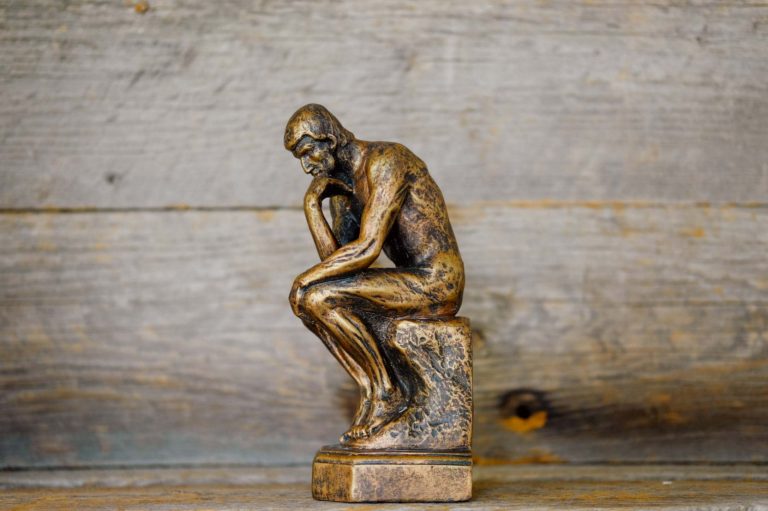
This article has the potential to change lives.
It explores a philosophy that can profoundly impact your way of thinking and lead to important personal growth. I am not exaggerating when I say that I have undergone a transformative experience since discovering this philosophy. It’s remarkably simple to comprehend, actionable, and immensely powerful.
Let me introduce you to: Stoicism
Historical
So, what is this philosophy?
It’s an ancient school of thought that originated in Greece. Zeno of Kition developed the philosophical principles of Stoicism in Athens during the 3rd century BC. Zeno and his followers formulated a comprehensive philosophy aimed at attaining happiness and tranquility in the face of life’s adversities. It perfectly resonated with the prevailing social identity crisis of that time, which gave rise to various schools of philosophies, including the Cynics.
The name “Stoicism” derives from the Stoa Poikile, a portico in Athens where Zeno and his disciples would discuss and transmit their doctrines. The Greek word “stoa” means “portico” or “porch,” hence the name Stoicism.
Stoicism quickly gained popularity and influence in the Roman Empire. Many Roman emperors, such as Marcus Aurelius and Seneca, were adherents of Stoicism and documented their philosophical beliefs in writings. Marcus Aurelius’ work, Meditations, in particular, contains a wealth of Stoic wisdom that continues to be cherished and studied today.
Core Concept
At the core of Stoicism lies a simple yet profound idea: understanding what you have control over in life. This single idea encapsulates the essence of Stoic philosophy. It may seem deceptively straightforward, but when applied to various aspects of your life, it reveals a wealth of knowledge and wisdom. It becomes apparent that there are numerous things in life over which you have no control—far more than you may realize or want to admit. The weather, politics, other people (a significant point), and even many aspects of your own body are beyond your control.

Everyday examples
The true power of this idea manifests when you start perceiving everyday occurrences differently. You quickly realize how little influence you have over many aspects of daily life. For instance, imagine waking up to heavy rain outside. Many people would feel annoyed, as they had intended to enjoy the beautiful sunny day. This frustration can permeate the entire day, negatively affecting their mood. However, a stoic perspective reveals that you cannot change the weather but can control how you approach it. In this example, adopting a certain level of acceptance can help you view the weather neutrally. Alternatively, you can find joy in the raindrops or make it a cozy day indoors, discovering the good in the situation.
Another example pertains to receiving bad news, such as the preferred political party losing an election. Although you may have had some conditional influence in this situation, becoming angry about the outcome is emotional baggage that serves no purpose, given that it is beyond your control.
Personally, I find the realization that we have no control over other people to be pivotal. If you observe an ordinary day with open ears and eyes, you’ll notice how frequently we emotionally harm one another. Many individuals attempt to impose their views and ideologies on others who don’t conform to their rules, often causing more suffering for themselves than for the other person. No matter how hard you try to be liked by everyone, convince someone of your opinions, or seek recognition, you ultimately have minimal influence over the thoughts, decisions, and ideas of others. Recognizing this can be discomforting for many, as we often crave control over various aspects of life. However, relinquishing this responsibility can also be incredibly liberating.
Impact on western philosophy
Stoicism has had a profound impact on Western philosophy and has influenced fields like ethics, psychology, and politics. Although the original Stoic school no longer exists, its teachings remain relevant and continue to resonate today.
The core idea of Stoicism is prevalent in many self-help books and is often presented by life coaches as a revolutionary program (sometimes without proper attribution). Once you start paying attention, you’ll notice its recurrence. Moreover, various therapeutic approaches, including cognitive behavioral therapy, are based on the fundamental principles of Stoicism and have proven highly effective in assisting individuals worldwide with their crises and problems.
Implications
Building upon this realization, you develop a different perspective on your actions and decisions. According to Stoic philosophy, only one person is responsible for your thoughts and feelings—you. It doesn’t matter what happens to you or what others tell you; how you react primarily depends on you.
So, how should you proceed? The Stoics believed in a value-based system for living a good life. Courage, wisdom, justice, and temperance are the four cardinal virtues that should guide decision-making in all situations.
While these virtues still hold great value, I believe there is a significant individual factor at play here. Realizing that your actions always originate from within yourself allows you to develop your own set of principles and act accordingly.
In future articles, I will delve deeper into the topic of value-based action and explore the philosophy of ethics.
In the meantime, take some time to get clear about your own core values and morals.
Hope I could help. If you enjoyed the article or if you have any questions or comments please let me know down below.
Nick


![Read more about the article What is the best life [my take on answering a lifelong question]](https://mensground.com/wp-content/uploads/2023/10/alex-stacanov-ptduMFtAPxY-unsplash-min-768x512.jpg)
Reading this felt like finding a long-lost treasure — a piece of writing that enlightens and comforts in equal measure.